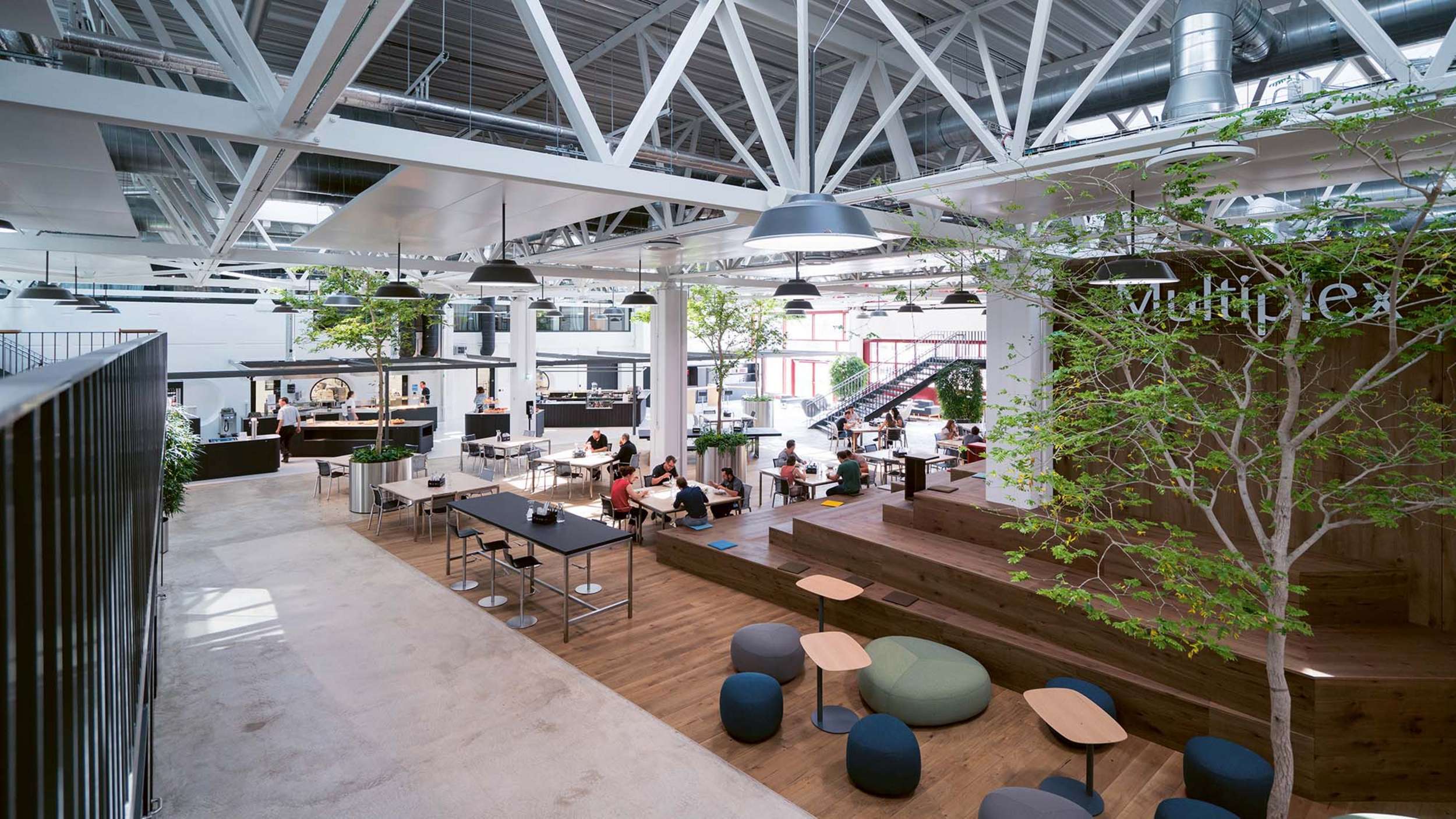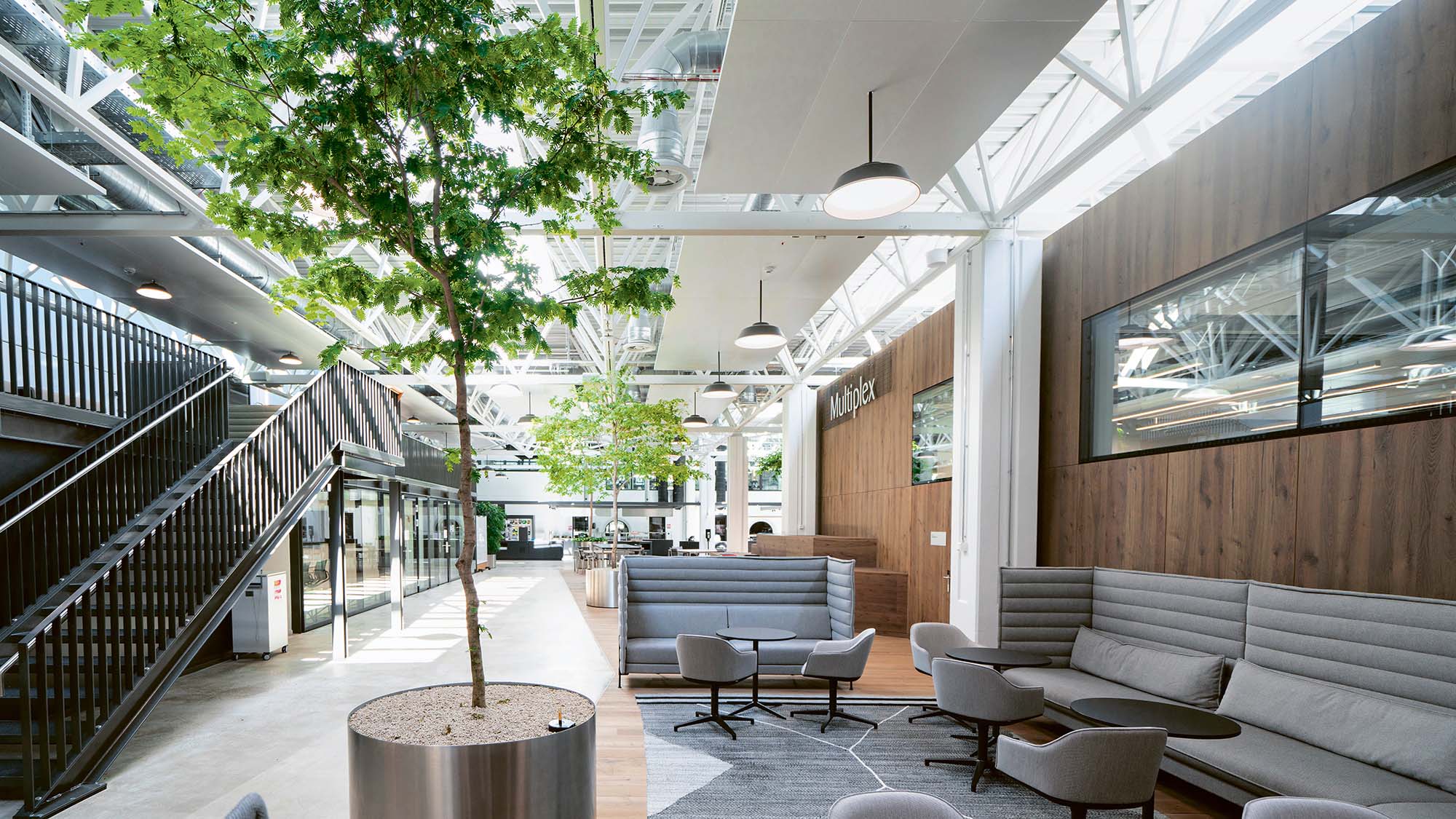Story
The healthy building
I n the future, health-conscious people won’t just be keeping a close eye on the food they eat; increasingly, they’ll also be looking at the spaces in which they have to spend time. So it’s time to ensure that both living spaces and offices promote health and productivity. Due to the pandemic, such aspirations are gaining traction among everyone, from real estate owners, tenants and users to public authorities and policy-makers. The issue also has economic relevance. According to a study by Harvard University, healthy buildings can significantly lower rates of employee absenteeism and health costs for employers.
Our goal is to place people at the heart of what we do and enhance their wellbeing through our real estate.
Making people the focus
Our goal is to place people at the heart of what we do and enhance their wellbeing through our properties. To do this, we need intelligent technologies as well as personal services customised to the user. According to the Healthy Building Network knowledge platform, the focus is on achieving an optimal indoor climate, ventilation and lighting quality, acoustics and invigorating interior design. Some early examples in Zurich and Basel show how office properties might be designed with these features.
First impressions count
In future, all properties will be entered via an automatic sliding or revolving door. Sanitiser will be offered as standard in the entrance hall. As you walk through the entrance, your body temperature will be taken. If this is within the appropriate range, you can proceed into the rest of the building, by scanning your hand. A lift concept that interacts with the overall system, like the one that has long been a feature of the Prime Tower in Zurich, carries the individual – identified by the system – straight up to their desired floor. The lifts are equipped with air purifiers that maintain the air quality within the lift.
Promoting health and productivity
Interaction and transit areas will be much more spacious in the future, so that employees can move more flexibly and meet each other to exchange ideas. The lighting system will be based on human-centric lighting technology. This will ensure optimum mental and emotional wellbeing and will stimulate productivity. All of the materials used will be free from substances that could have a negative impact on wellbeing, such as volatile organic compounds. Quite the opposite, in fact: they will be treated with a permanent antimicrobial and odour-neutralising coating.
Better air means a better «climate»
The Messeturm in Basel was renovated in 2020/21. Measurements show consistent improvements in air quality. This is also aided by plants that act as humidifiers and natural acoustic insulation. These changes have also helped to reduce stress. The air conditioning system is part of the «healthy building ecosystem» and distributes the purified interior air by zone, at the right temperature for each zone. This is made possible by sensors that monitor heat, cold, pressure and the CO2 content of the indoor air on an ongoing basis and trigger control commands if the readings stray from the optimum.
For the users’ wellbeing
On-site services such as fitness, relaxation and catering options that promote good health and specially designed colour schemes and furnishing concepts also address new needs. In this age of employer branding and wider social awareness of healthy living, the human feel-good factor in a «healthy building» will be hugely instrumental in boosting the value and appeal of real estate. For the benefit of users, tenants and property owners.

